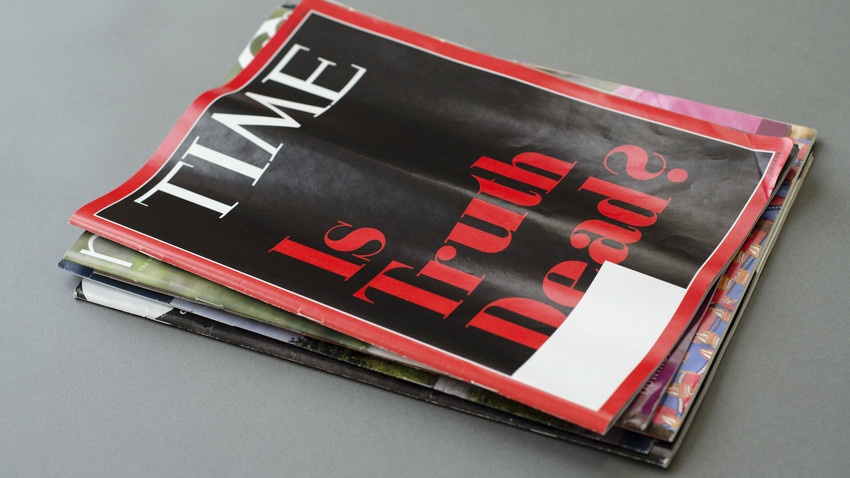
"Is Truth Dead?"
Thanks to a faculty member of an engineering school in Italy (who with his wife has been watching our worship service), I read a fascinating piece this week by Tom Harford, “The Problem with Facts.” Couple it with this week’s TIME magazine cover story, “Is Truth Dead?”—and it is clear growing suspicions are becoming public conversation. Are we witnesses (even participants) to a dramatic shift in public ethos regarding truth telling and fact checking?
Harford opens with the 1953 narrative of how Big Tobacco pulled off their stunning public relations coup by dissuading the public from believing the mounting evidence smoking causes cancer. In 1995 a Stanford University historian detailed the tobacco case closely. “This is the study of how ignorance is deliberately produced. . . . The facts about smoking—indisputable facts, from unquestionable sources—did not carry the day. The indisputable facts were disputed. The unquestionable sources were questioned. Facts, as it turns out, are important, but facts are not enough to win this kind of argument” (http://timharford.com/2017/03/the-problem-with-facts/).
In the on-going tug of war between the news media and the President, the question of truth and truth-telling, of facts and “alternative facts,” of news and “fake news,” has hit an unprecedented fever pitch. As a consequence the miasma of “he said-she said” has effectively obscured not only the public’s knowledge of “truth” but also its trust in the heretofore generally regarded reputable truth-tellers of the news media and the White House. That there are those who argue it’s always been this way—and after all, the Brexit proponents across the pond resorted to the same distortion of facts and truth to achieve their victory—hardly mitigates the obvious paradigm shift we now witness regarding public integrity, ethics and truth-telling. “In the radical democracy of social media, even the retweets of outraged truth squadders [those defending truth] has the effect of rebroadcasting false messages” (TIME 4-3-17 p 37). And so it goes. And it only gets worse.
But why be concerned with this food fight between our media and our politicians? Because truth really does matter. Pilate’s “What is truth?” dismissal, when the One who was and still is “the way, the truth and the life” stood before him, is a reminder of the high stakes fall-out when leaders waive truth aside in favor of expediency (see John 18:37-38; 14:6; 19:16). And if the crucifixion of Jesus portends the end result of when church and state collaborate to rid themselves of uncomfortable truth and uncompromising truth-tellers, then we do have reason to not only care about truth-telling today, but to also be concerned, deeply concerned.
Concerned that a public so easily persuaded by Big Tobacco marketers to reject what was “obvious” scientific evidence could just as easily become a public dissuaded by other “marketers” from believing compelling biblical evidence championed by a band of truth-tellers one day yet to come. The truth is—truth matters.
So how should you and I be living in these days of prevarication? (1) We must always tell the truth—“You shall not give false testimony. . . . Do not spread false reports. . . . Do not lie to each other” (Exodus 20:16; 23:1; Colossians 3:9). And (2) we must always live the truth—“Let your good works [words] shine before others that they may glorify your Father in heaven” (see Matthew 5:16). Notice how high God raises the bar: “A glance, a word, even an intonation of the voice , may be vital with falsehood. Even facts may be so stated as to convey a false impression. . . . Everything that Christians do should be as transparent as the sunlight” (Thoughts from the Mount of Blessing 68 emphasis supplied).
Why? Because truth matters. So in a world running out of it, I say let’s stand up and let it shine!